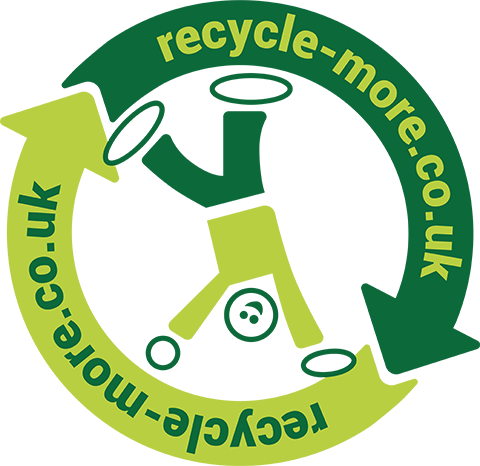
A journey of impact: The power of volunteering
Himani Ladwa
November 6, 2024
Travelling is a great passion of mine! I’ve been incredibly fortunate to visit 19 countries, which has given me a unique perspective on the world and a deep appreciation for experiencing diverse cultures. This is why I seized a volunteering opportunity in the Philippines, which involved working on urban projects as well as environmental projects.
The Philippines is an archipelago consisting of hundreds of islands formed by ancient volcanic eruptions beneath the Pacific Ocean. I volunteered in Palawan, a native island south of Manila. The island isn’t the wealthiest and the community has a lack of direct healthcare and often loses power; however, this does not stop the locals.
While on the island, I volunteered for a group called the Green Lion located in Tigman, a rural village on the east coast of Palawan. Upon arrival, the locals welcomed my group with dances and food and taught us some of the local language. During my time there the locals introduced us to their favourite source of entertainment, karaoke. To be honest, I went into this swearing I would never sing in front of anyone; however, at the end of the trip I was singing at the top of my lungs alongside the rest of the volunteers having the time of my life and now I can see why they enjoy it so much.
Conserving nature: The Mangrove Project
Mangroves are important for the island’s coastline and the maintenance of it. They reduce erosion from waves, help protect against storm surges and bring a great volume of biodiversity to the shoreline. As part of the ongoing conservation work, we collected seeds that had dropped from the branches of the trees. 1, 2, 3, … up to 100, with our feet sloshing around in mud, sand, and cool water. It was a humbling experience as I fell knee deep into mud for an hour only managing to collect 30 seeds the first day, when the local volunteer was moving so gracefully collecting more than 100 seeds. Nonetheless, during my time there, I got faster and managed to collect more than a measly 30 each subsequent day.
Building with innovation: Eco-Bricks
Innovation in the village is astounding, they have built school buildings out of rubbish. The bricks are made from items collected from the coastline and the village, which are then tightly stuffed into large plastic bottles to become “Eco-bricks.” The local builders used these, with cement, to create walls for the local school and borders surrounding the school. Don’t worry it didn’t look grey and boring. Volunteers, in their free time, helped to paint murals around the school making it more inviting. The school is the centre of the community, due to the lack of communal areas in the town, so the murals can be enjoyed by the whole town not just the students and those that work there.
Educating the next generation
Getting the opportunity to teach the next generation was a privilege. They know more than we do about sustainability and recycling, as they are the ones that experience, first hand, the effects of poorly managed waste. Teaching in the schools made me realise how privileged we are in the West, having access to interactive boards, books, and pens, as most of the children on the island don’t have the basics, but they make it work. We only taught them the basics like the world map, maths, and a small amount of English, but they loved it and most of all the different accents of volunteers from around the world.

A bittersweet goodbye: Lessons in volunteering
Volunteering, even though it isn’t permanent, is a step in the right direction to not only make a difference to the environment but to educate the next generation on traditional and new methods and approaches to sustainability.
Volunteering in the Philippines was one of the best experiences I have had. The other volunteers were amazing! I have made lifelong friendships and have a newfound love for karaoke. I left knowing I had made a small difference to the local village, the children, and the environment, with a whole new perspective on life and a bunch of great memories. I would encourage anyone who can to volunteer whether in the UK or around the world. It is something you will never forget.
Concluding thoughts: Why volunteering matters
Volunteering offers a unique way to connect with new cultures, make meaningful contributions to communities, and expand your worldview. Whether you're working on environmental conservation, education, or community development, your efforts can leave a positive, lasting impact.
Volunteering closer to home: Making a difference locally
I understand that not everyone can travel or take on international volunteering opportunities, but that doesn’t mean you can’t make a significant impact. There are plenty of ways to volunteer in your local community. From organising local litter picks to participating in river clean-up projects, you can make a tangible difference to your local environment.
Here are a few UK-based volunteering initiatives you might consider:
- Keep Britain Tidy: This organisation runs litter-picking events across the UK, helping keep our public spaces clean and beautiful.
- The Rivers Trust: Engage in local river clean-ups and conservation efforts to protect the UK’s waterways and its ecosystems.
- Surfers Against Sewage: Join their beach clean-ups and campaigns to tackle plastic pollution in our oceans.
- The Conservation Volunteers (TCV): Get involved with TCV’s wide range of projects, from tree planting to habitat conservation, right in your local area.
Volunteering doesn’t require a plane ticket. By participating in these local initiatives, you’ll not only contribute to your community but also make a positive impact on the environment, just like those working on projects abroad.
Disclaimer: The opinions expressed in this blog represent those of the author, Himani Ladwa, and are not those of recycle-more, Valpak Limited or any other organisation.





